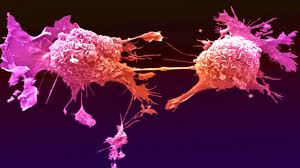
Breaking News
 The Vain Struggle to Curb Congressional Stock Trading
The Vain Struggle to Curb Congressional Stock Trading
The Tesla Model S Is Dead. Here's Why It Mattered
 America's First Car With Solid-State Batteries Could Come From This Little-Known EV Maker
America's First Car With Solid-State Batteries Could Come From This Little-Known EV Maker
 POWERFUL EXCLUSIVE: Learn Why Silver, Gold, & Bitcoin Plunged After JD Vance Announced...
POWERFUL EXCLUSIVE: Learn Why Silver, Gold, & Bitcoin Plunged After JD Vance Announced...
Top Tech News
 How underwater 3D printing could soon transform maritime construction
How underwater 3D printing could soon transform maritime construction
 Smart soldering iron packs a camera to show you what you're doing
Smart soldering iron packs a camera to show you what you're doing
 Look, no hands: Flying umbrella follows user through the rain
Look, no hands: Flying umbrella follows user through the rain
 Critical Linux Warning: 800,000 Devices Are EXPOSED
Critical Linux Warning: 800,000 Devices Are EXPOSED
 'Brave New World': IVF Company's Eugenics Tool Lets Couples Pick 'Best' Baby, Di
'Brave New World': IVF Company's Eugenics Tool Lets Couples Pick 'Best' Baby, Di
 The smartphone just fired a warning shot at the camera industry.
The smartphone just fired a warning shot at the camera industry.
 A revolutionary breakthrough in dental science is changing how we fight tooth decay
A revolutionary breakthrough in dental science is changing how we fight tooth decay
 Docan Energy "Panda": 32kWh for $2,530!
Docan Energy "Panda": 32kWh for $2,530!
 Rugged phone with multi-day battery life doubles as a 1080p projector
Rugged phone with multi-day battery life doubles as a 1080p projector
 4 Sisters Invent Electric Tractor with Mom and Dad and it's Selling in 5 Countries
4 Sisters Invent Electric Tractor with Mom and Dad and it's Selling in 5 Countries
Experimental cancer drug that targets common genetic fault can shrink tumours...

An experimental cancer drug that targets a common genetic fault has been shown to shrink tumours by up to 67 per cent in just six weeks.
Scientists tested their newly developed anti-cancer drug AMG 510 on four patients, two of whom saw their tumours shrink. It did not work for the others.
In studies on mice, the treatment helped to shrink, and in some cases eradicate, the growing tumours.
The daily pill works by turning 'off' the KRAS gene. Mutated forms of the genes are permanently trapped 'on', causing cancerous cells to multiply.
This abnormal activity fuels the development of up to 50 per cent of lung cancers, as well as some pancreatic and bowel cancers.
The pharmaceutical company described their findings as a 'milestone' for patients with cancer KRAS-mutant cancers.
The research was led by by pharmaceutical company Amgen Research, based in Thousand Oaks, California.
The findings, published in Nature, are the first to report the effects of inhibiting KRAS with a drug.



